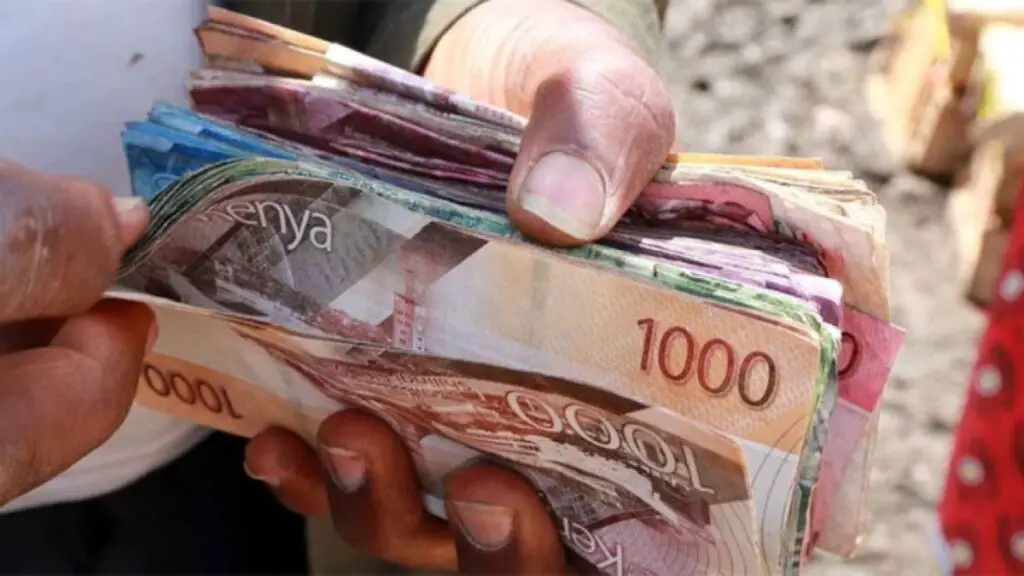- Kenya’s high-interest rates hit 13 per cent in the last review by the Central Bank of Kenya.
- Since mid-2023, however, the World Bank’s index of commodity prices has remained essentially unchanged.
- World Bank reiterates that between mid-2022 and mid-2023, global commodity prices plummeted by nearly 40 per cent.
Kenyan consumers will have to bear the high cost of borrowing for much longer as Central Banks will not loosen their monetary policies any time soon, the World Bank has said.
The lender says the continued tightening will be a result of the prevalent global economic shocks, such as the Middle East conflict, which is threatening to halt the inflationary decline that has occurred in the past two years.
“Global commodity prices are leveling off after a steep descent that played a decisive role in whittling down overall inflation last year,” the World Bank says in its latest commodity markets outlook. “However, the prices will ease slightly in 2024-25 compared to the past year on the back of the Middle East conflict. This could make it harder for central banks to cut interest rates quickly.”
Indermit Gill, World Bank Group’s chief economist and senior vice president, concurs with this saying global inflation remains undefeated.
“A key force for disinflation, falling commodity prices, has essentially hit a wall. That means interest rates could remain higher than currently expected this year and next. The world is at a vulnerable moment, a major energy shock could undermine much of the progress in reducing inflation over the past two years,” Gill said.
High-interest rates
Wold Banks’s projection could already be evident in Kenya as the Central Bank of Kenya (CBK) in the latest review maintained its base lending rate at 13 per cent despite inflation retreating to 5.7 per cent as of March.
The apex bank’s Monetary Policy Committee (MPC) noted that inflation is expected to remain within the target range, supported by lower food prices with the expected improved supply.
CBK, however, was not clear whether to consider a rate cut in the next review, but instead said it will closely monitor the impact of the policy measures as well as developments in the global and domestic economy and stands ready to take further action as necessary in line with its mandate.
“The current monetary policy stance will ensure that overall inflation continues to decline towards the five per cent mid-point of the target range,” CBK said.
This could be pointing toward the World Bank’s projection of no sooner respite in base lending rates by Central Banks, meaning consumers will still have to pay high interest on loans from lenders.
World Bank reiterates that between mid-2022 and mid-2023, global commodity prices plummeted by nearly 40 per cent which helped drive most of the roughly two-percentage-point reduction in global inflation between 2022 and 2023. Since mid-2023, however, the World Bank’s index of commodity prices has remained essentially unchanged.
Assuming no further flare-up in geopolitical tensions, the Bank’s forecasts call for a decline of three per cent in global commodity prices in 2024 and four per cent in 2025.
“This pace will however do little to subdue inflation that remains above central bank targets in most countries. It will keep commodity prices about 38 per cent higher than they were on average in the five years before the Covid-19 pandemic,” the lender says.
Persistently, high geopolitical tensions over the past two years have propped up the price of oil and many other critical commodities even as global growth has slowed.
Fuel Prices
The price of Brent crude oil, for example, surged to $91 per barrel earlier this month nearly $34 per barrel above the 2015-2019 average. World Bank’s forecasts indicate that Brent prices will average $84 per barrel in 2024 before declining to an average of $79 in 2025, assuming no conflict-related supply disruptions.
If the conflict in the Middle East were to escalate further, however, oil-supply disruptions could push up global inflation, the lender adds in part.
“A moderate conflict-related supply disruption could raise the average Brent price this year to $92 per barrel. A more severe disruption could see oil prices surpass $100 per barrel, raising global inflation in 2024 by nearly one percentage point.”
World Bank’s deputy chief economist Ayhan Kose thus says a striking divergence could emerge between global growth and commodity prices.
Read Also: How interest rates are shaping Tanzania’s housing agenda
“Despite relatively weaker global growth, commodity prices will most likely remain higher in 2024-25 than in the half-decade before the Covid-19 pandemic,” Kose said.
“One critical factor behind this divergence relates to heightened geopolitical tensions that are keeping upward pressure on prices of major commodities and stoking risks of sharp price movements. Central banks must remain alert about the inflationary implications of commodity-price spikes amid elevated geopolitical tensions.”
An escalation of the conflict in the Middle East could also drive up prices of natural gas, fertilizers and food, the World Bank report notes.
The Bank’s baseline forecast, however, is for overall food prices to decline somewhat by six per cent in 2024 and four per cent in 2025. Fertilizer prices are expected to fall by 22 per cent in 2024 and six per cent in 2025.
